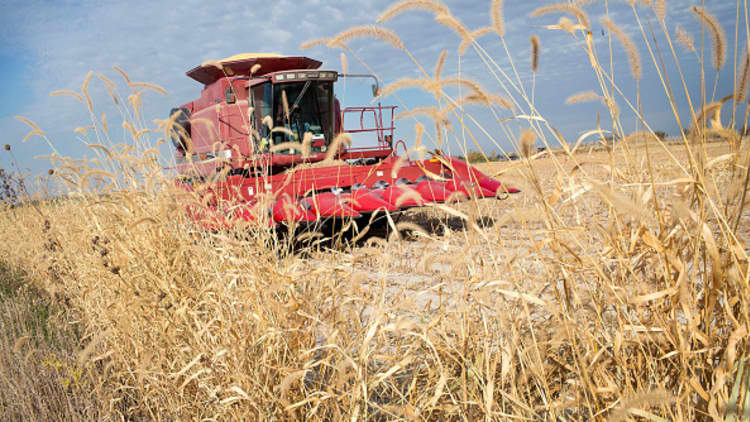
As trade tensions between the United States and China continue to escalate, farmers in Iowa are starting to feel the pain.
According to Iowa Agriculture Secretary Michael Naig, China has already canceled orders on products it typically imports from the state.
“We are already feeling the brunt of these tariffs in the form of a reduction in the purchase of products that historically we’ve been selling to China for many years now, soybean in particular,” he said on “Power Lunch.”
Last week, China slapped retaliatory tariffs on $34 billion worth of U.S. goods, including soybeans and pork, in response to U.S. duties on $34 billion worth of Chinese goods.
President Donald Trump responded earlier this week by unveiling a list of tariffs on $200 billion in Chinese goods. The duties will not go into effect immediately but will undergo a two-month review process. China then hit back with its own threat of tariffs on $200 billion of U.S. goods.
Naig said that Iowa predominantly produces corn and soybean, so farmers can’t try to come up with a “plan B” by shifting production.
“They’ve spent a lot of time and energy to build this market, particularly China and soybean, and we’d like to see that effort pay dividends, not be wasted,” he said.
China buys about half of the U.S. soybean exports, and roughly one in three rows of soybeans grown on the nation's farms goes to the world's second-largest economy, according to the American Soybean Association. Nearly $20 billion in U.S. agricultural exports went to China last year, with more than half of that amount coming from soybeans.
While producers are concerned about the “near-term turbulence” in the marketplace right now, Naig said there is also fear about destroying demand for their products around the world on a more permanent basis.
“Our message to the president is we can’t continue to bear the brunt of the retaliation and that our farmers really can’t afford to wait,” he said. “They are planning for a 2019 growing season and for making economic decisions that will impact them for years to come.”
He said the state doesn’t have any “current plans” to send a trade delegation to directly negotiate with China, but “we are always in contact with our customers around the world."
Political fallout?
Trump won Iowa in the 2016 presidential race, and with crucial midterm elections coming up in November, the tariffs could have an impact, Naig said.
“Issues that hit the pocketbook certainly will have political ramifications,” he noted. “The cost to produce a crop is more than what we can sell it for at this point. Our producers are patient but to a point.”
His comments echoed those of American Soybean Association CEO Ryan Findlay, who told CNBC on Thursday the low prices essentially don’t support paying bills.
"Farmers see that pain right now," Findlay said on "Power Lunch." "You have to have the prices to pay the bills — and the prices aren't there right now."
Trump tweeted his support for farmers earlier this week.
Naig said farmers understand that there are issues that need to be resolved with China.
“Our farmers and businesses are hopeful we can get to a positive conclusion here,” he said.
The White House did not immediately respond to a request for comment.
— CNBC’s Jeff Daniels contributed to this report.


